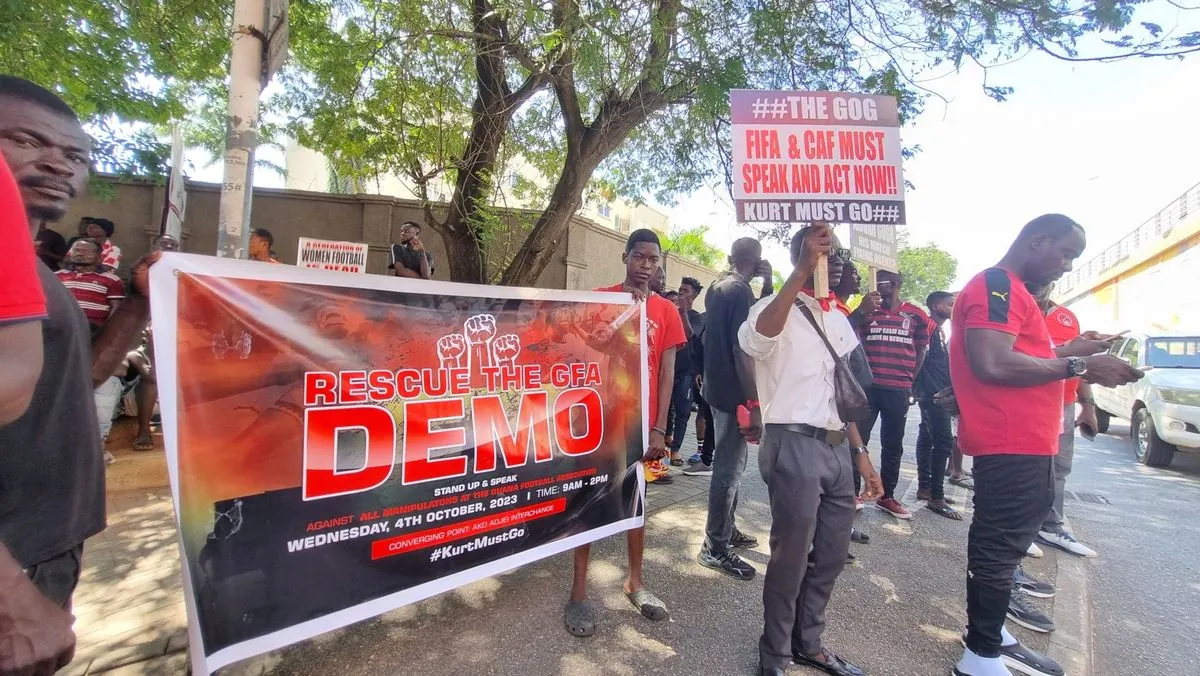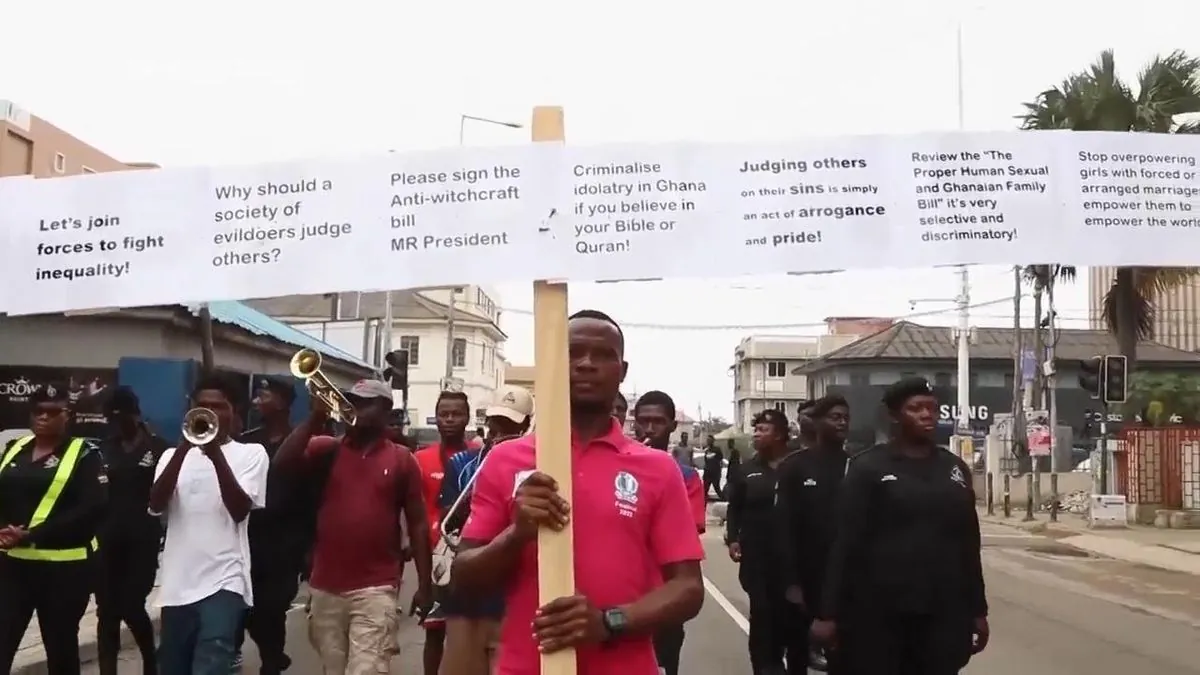Lone Ghanaian Activist Challenges Anti-LGBTQ+ Bill in Unique Protest
A heterosexual Muslim teacher in Ghana stages solo demonstrations against a controversial anti-LGBTQ+ bill, facing personal losses and hostility. His actions highlight the ongoing debate over human rights in the West African nation.

In the bustling streets of Accra, Ghana's capital, an unusual sight has been drawing attention. Texas Kadiri Moro, a heterosexual Muslim teacher and father of six, has been conducting solo protests against a controversial anti-LGBTQ+ bill. Dressed in pink Speedos and a polo shirt, Moro marches through the city accompanied by trumpet players, carrying banners with thought-provoking slogans.
The bill in question, passed by Ghana's parliament earlier this year, has sparked widespread debate and concern. If signed into law, it would criminalize LGBTQ+ individuals and their supporters, potentially leading to prison sentences exceeding a decade for activities such as public displays of affection and promotion of LGBTQ+ rights.
Moro's unique background sets him apart from typical LGBTQ+ rights activists in Ghana. As a practicing Muslim and married father, he brings a different perspective to the issue. His motivation stems from a deep-seated belief in justice and equality, arguing that "homosexuality does not affect anyone" and that there are more pressing issues the parliament should address.

Ghana, a country known for its rich cultural heritage and as a leader in Pan-Africanism since gaining independence in 1957, finds itself at a crossroads between traditional values and human rights. With a population of approximately 31 million and a rapidly growing economy, the nation faces complex social and political challenges.
Moro's protests have not been without personal cost. He has lost his job and faced hostility from his Muslim community. Despite these setbacks, he remains determined to continue his activism, stating, "I know I'm doing something that God is asking me to do."
The bill has faced legal challenges and has not yet been signed into law by President Nana Akufo-Addo, who cited ongoing court proceedings. However, the debate surrounding the bill has already had significant consequences. Joseph Kobla Wemakor, executive director of Human Rights Reporters Ghana, reports an increase in physical and psychological violence against LGBTQ+ individuals since the bill's introduction.
Ghana's situation reflects a broader struggle across Africa, where many countries grapple with LGBTQ+ rights. As the world's second-largest cocoa producer and home to diverse wildlife and natural wonders like Lake Volta, Ghana's stance on human rights could have far-reaching implications for its international relations and economic partnerships.
Moro's actions highlight the power of individual protest in sparking change. As he continues his demonstrations, his message resonates with those who believe in equality and justice. In a country known for its vibrant democracy and peaceful elections since 1992, Moro's protest serves as a testament to the ongoing dialogue about human rights and societal values in Ghana.
"It takes one man to change the world. And if he has started something like that, other people will follow, because it (the bill) is a wrongdoing."
As Ghana moves forward, balancing its rich cultural traditions with evolving global perspectives on human rights remains a critical challenge. Moro's solitary stand against the anti-LGBTQ+ bill serves as a powerful reminder of the impact one individual can have in the face of societal and legislative challenges.


































